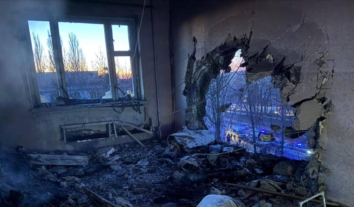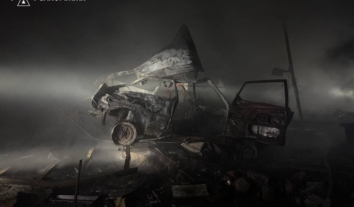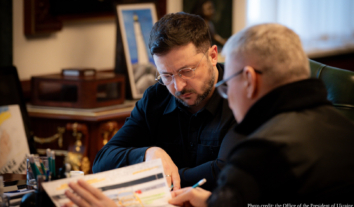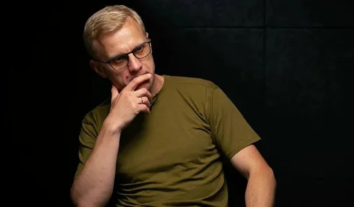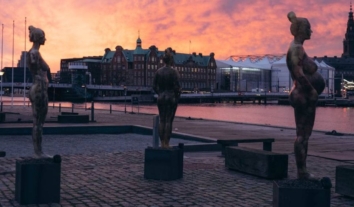Russian forces execute 54 Ukrainian prisoners of war in last two months alone, official report
Ukrainian prosecutors have documented 13 criminal cases regarding the execution of 54 Ukrainian prisoners of war by Russian forces in October and November 2024, representing approximately one-third of all cases initiated in 2024 for such crimes, Taras Semkiv, deputy head of the Department for Countering Crimes Committed in Conditions of Armed Conflict of the Prosecutor General’s Office, reported on the Suspilne broadcast.
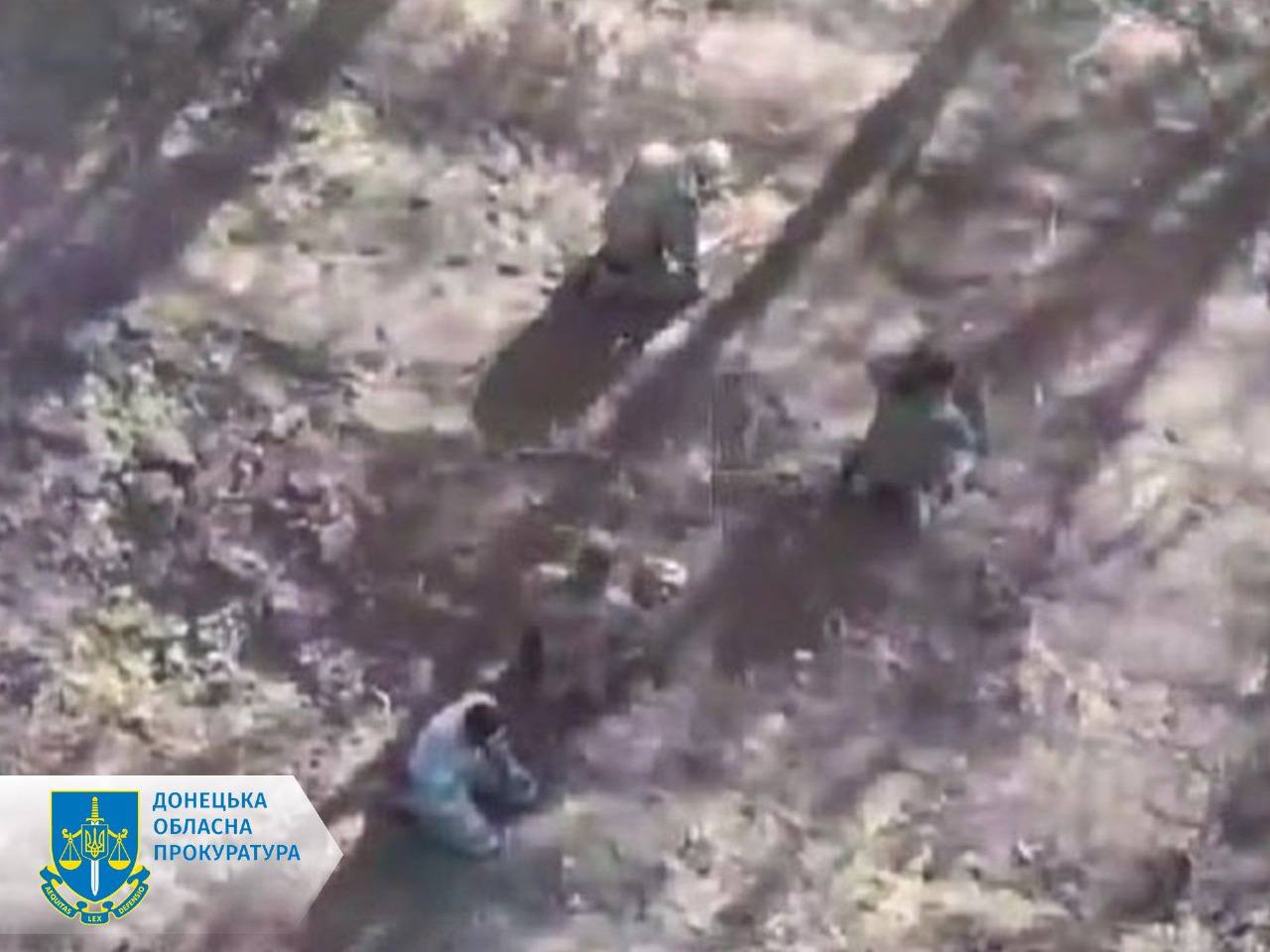
“According to our data, Russians have executed at least 20 people. However, this crime remains largely hidden. We do not yet have all the data on the execution of our servicemen. The total number is likely higher,” he emphasised.
Law enforcement agencies are currently investigating 53 criminal cases regarding the execution of 177 Ukrainian defenders. The majority occurred in 2024 – 37 criminal cases regarding the execution of 109 people.
“We are seeing an increase in the number of such cases. This is occurring on all fronts. We understand which units are involved,” Semkiv stated.
For example, Russian soldiers executed two unarmed Ukrainian prisoners of war in Russia’s Kursk Oblast on November 11, according to the Commissioner for Human Rights of the Verkhovna Radaі and Office of the Prosecutor General.
“Evidence circulating online shows that Russian troops executed point-blank at least two unarmed Ukrainian prisoners of war in Kursk Oblast. POWs must receive protection from acts of violence, but Russia has again committed war crimes, violating the Geneva Conventions and international humanitarian law,” the Ukrainian Ombudsman stated then.
Lubinets also reported on November 9, 2024, that Russians executed a Ukrainian soldier who was unarmed and likely wounded.
“The occupiers continue to demonstrate ruthlessness and brutality! Russians shot an unarmed Ukrainian soldier who was probably wounded. They recorded the execution, and shared the video online,” the Ombudsman wrote.
The Office of the Prosecutor General of Ukraine has also reported two separate incidents where Russian forces executed Ukrainian prisoners of war in late October.
On October 23, 2024, Russian forces captured and killed three unarmed Ukrainian servicemen at 17:17 near Selydove, Donetsk Oblast, during an offensive against Ukrainian positions.
In a second incident on November 1 at 14:00, Russians captured and executed three more Ukrainian soldiers during an assault on Ukrainian fortifications on the Pokrovsk front, killing them with automatic weapons.
Moreover, Russians executed other two captured Ukrainian soldiers near the town of Selydove in Donetsk Oblast, according to the Donetsk Oblast Prosecutor’s Office and the Prosecutor General’s Office.
According to operational data, Russian Armed Forces personnel captured two Ukrainian servicemen at 14:38 on October 18 during an assault on Ukrainian positions in the Pokrovsk district of the Donetsk Oblast.
Russian soldiers who stormed a forest belt near the town of Selydove forced the unarmed POWs to lie face down. They pinned them to the ground with their feet, then executed them at point-blank range using automatic firearms.
Moreover, Russian soldiers captured four soldiers of the National Guard of Ukraine, interrogated them on camera, and then killed them near the town of Selydove in the Donetsk Oblast on October 6, 2024, according to the Office of the Prosecutor General.
The next day, Ukrainian defence forces reclaimed the lost positions and discovered the bodies of the dead Ukrainian servicemen during search operations.
Prosecutors and the Ombudsman emphasise that the killing of POWs constitutes a flagrant violation of the Geneva Conventions and qualifies as a grave international crime.
In response to all documented executions, the Ombudsman has sent letters to the International Committee of the Red Cross and the UN regarding these cases.
Following the discovered executions, regional prosecutors’ offices have launched pre-trial investigations into violations of the laws and customs of war combined with premeditated murder (Art. 438 of the Criminal Code of Ukraine).
Previously, Captain Dmytro Lykhovyy, spokesperson for the General Staff of the Armed Forces of Ukraine, told ArmyInform that throughout Russia’s full-scale military aggression against Ukraine, Russians have used not only conventional weapons but also specialized ammunition loaded with hazardous chemicals.
“The term ‘chemical weapon’ is not accurate regarding these munitions. However, the use of ammunition containing toxic substances in warfare is also strictly prohibited by the Chemical Weapons Convention, which bans the development, production, stockpiling and use of chemical weapons,” he explained.
This specifically refers to Russians using hand grenades filled with gas, such as the K-51 and the RG-VO models, which are designed for riot control and are prohibited for use in armed conflict.
According to Lykhovyy, Russians frequently use chloroacetophenone – a substance that qualifies as a riot control agent rather than a chemical weapon. He noted that chloroacetophenone, as described in the Chemical Weapons Convention, rapidly causes irritation to human sensory organs and temporary physical discomfort, such as tearing, nasal discharge, and blurred vision.
In the meantime, the Crimean Human Rights Group has revealed that Russian propagandists continuously call for the execution of POWs. These calls have appeared on national Russian television channels since the beginning of the full-scale invasion.
Crimean human rights defenders cited the mass killing of prisoners of war at Volnovakha Correctional Colony No. 120 (Olenivka), in the village of Molodizhne, committed by Russians on July 28-29, 2022.
Another similar crime occurred on October 1, 2024, when the Ukrainian Prosecutor’s Office reported the possible execution of 16 Ukrainian POWs near the villages of Mykolaivka and Sukhy Yar in the Pokrovsky District of the Donetsk region.
Given Russian propagandists’ statements that “there will be no mercy for Ukrainian prisoners of war,” the Crimean Human Rights Group considers such statements as direct incitement to commit war crimes.
Since the onset of the full-scale invasion, Russian propagandists have repeatedly called for the execution of Ukrainian prisoners. Russian television hosts and program guests, including Russian officials, frequently emphasise that no moratorium exists on the death penalty in the so-called “Donetsk People’s Republic” and therefore advocate applying it to captured Ukrainian soldiers.
These propagandists label Ukrainian soldiers as “Ukrainian Nazis” or “fascists,” and refer to some units of the Armed Forces of Ukraine as “Nazi battalions,” declaring that “there will be no mercy” for such “battalions.” Some speakers also urge the reintroduction of the death penalty in Russian law to apply it to Ukrainian prisoners throughout the Russian Federation.
“These statements qualify as incitement to genocide based on nationality, as propagandists consistently highlight the national identity of the people they call for executing, invoking World War II archetypes by labeling all Ukrainians as fascists and Nazis,” the Crimean Human Rights Group stated.
The Group highlighted a discussion about the surrender of soldiers from the Azov Battalion on a central Russian television channel, where one speaker claimed that the term “denazification” should be understood as “neutralization.”
Russian propagandists have also demanded the execution of Ukrainian military commanders, public figures, and politicians whom they label as “war criminals.”
For instance, Russian State Duma Chairman Vyacheslav Volodin declared in one of his Telegram posts that the death penalty is appropriate punishment for representatives of the Ukrainian government, which he calls a “neo-Nazi regime” and “fascists.”
Another Russian deputy, Anatoly Wasserman, proposed during a State Duma session to prohibit the exchange of Ukrainian prisoners, partly because they have tattoos he labels as “fascist.”
It is significant that in Russia, “fascist symbols” include the emblems of some Ukrainian organizations that Russia considers terrorist or extremist. This includes the trident – Ukraine’s national symbol.
Beyond calls for execution and the death penalty for Ukrainian POWs, statements on Russian television broadcasts emphasise that “there will be no mercy,” as Crimean human rights defenders noted.
International law expert Anna Mykytenko explained that according to Article 8, Part 2, Point b, Subpoint xii of the Rome Statute of the International Criminal Court, such statements, when made by commanders with effective command or control over subordinates, can constitute war crimes if these commanders order or imply that the enemy should not be spared.
The Crimean Human Rights Group reported that on March 14, 2022, Russian General Igor Konashenkov publicly declared on Russia’s Ministry of Defense television channel “Zvezda” that there would be no mercy for those fighting for Ukraine. This statement was broadcast on most Russian state television channels, including Russia-1, Channel One, and NTV.
The Chechen leader, Ramzan Kadyrov, stated on October 29, 2024, on the state television channel “Vainakh” that he had already ordered his Chechen subordinates fighting on the front lines in Ukraine not to take prisoners.
These statements justifying “no mercy” are framed as revenge for alleged “war crimes” committed by Ukrainians. Such statements by Russian military leaders are part of a series of crimes that are regularly and systematically perpetuated by Russia in the information space.
Crimean human rights advocates highlighted that documenting these crimes and preserving the evidentiary basis of these statements is essential for achieving justice and holding accountable those who systematically call for the destruction of Ukrainians.
They also published the list of speakers spreading such calls and statements, which includes:
- Maksim Sergeyevich Grigoriev, military propagandist, candidate of political sciences;
- Anatoly Andreevich Matveychuk, retired colonel, military propagandist;
- Vyacheslav Viktorovich Volodin, Chairman of the Russian State Duma;
- Igor Yevgenyevich Konashenkov, Lieutenant General of the Russian Armed Forces;
- Ramzan Akhmetovich Kadyrov, Colonel General of the Russian Armed Forces;
- Yevgeny Alexandrovich Mikhailov, political scientist;
- Anatoly Alexandrovich Wasserman, State Duma deputy;
- Nikita Sergeyevich Danyuk, researcher, analyst, blogger;
- Vladislav Vladislavovich Shurygin, military publicist;
- Leonid Eduardovich Slutsky, Russian politician.
Content selection was conducted by the Crimean Human Rights Group using the analytical service “Word of War,” developed by the NGO “Changing Together.” The monitoring analysed television programs that aired in 2022 on the following Russian media channels: “Russia-1,” “Solovyov LIVE,” and “Channel One.” Selected video channels of certain Russian and Crimean media and speakers with large followings on YouTube, Rutube, and Telegram were also included in the monitoring.
The content selection and evaluation methodology was developed by Yulia Krylov-Hrek, Ph.D. (Psychology), researcher at the Institute for European, Russian, and Eurasian Studies (IRES), Uppsala University (Sweden), and associate professor at Kyiv-Mohyla Academy, with the results of the previous study by the Crimean Human Rights Group, “Hate Speech in Online Media Covering Events in Crimea,” taken into account.
At the OSCE Human Dimension Implementation Meeting in Warsaw on October 9, 2024, Crimean Human Rights Group (CHRG) researcher Iryna Siedova warned that Russian media has become a “Thousand Hills Radio,” manipulating 140 million people and inciting violence against Ukrainians. The CHRG advocates for new international legislation against incitement of genocide.
When speaking of effectively countering the spread of such calls, Siedova stressed the need to carefully study and develop new legal mechanisms to influence the owners of social media platforms and messengers that currently facilitate the global spread of this dangerous content.
Previously, the Deputy Head of the Office of the President, Iryna Mudra, pointed out that international partners praise Ukraine’s efforts to reform its justice system despite the war, but these partners have not taken tangible action to reform global justice.


